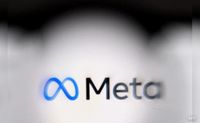In a bold move to strengthen its presence in the artificial intelligence arena, Meta Platforms Inc. has unveiled its latest generation of AI models, Llama 4, aimed at competing with industry giants like OpenAI and Google. The announcement, made on April 5, 2025, has sent ripples through the tech community, as Meta introduces three models: Llama 4 Scout, Llama 4 Maverick, and the still-in-development Llama 4 Behemoth.
Meta's CEO, Mark Zuckerberg, emphasized the company's commitment to open-source AI, stating, "Our goal is to build the world's leading AI, open source it, and make it universally accessible... I've said for a while that open-source AI will lead the way, and with Llama 4, we're starting to see that happen." This initiative marks a significant step in Meta's strategy to enhance its AI capabilities and compete more effectively in a rapidly evolving market.
At the heart of the Llama 4 suite is the Llama 4 Behemoth, touted as one of the most advanced large language models (LLMs) in existence, boasting nearly two trillion parameters. While Behemoth is still undergoing training, the immediate releases, Scout and Maverick, are available for developers and users through Meta's apps and the Meta.ai website.
The Llama 4 models are designed to be natively multimodal, allowing them to process and respond to various media types beyond just text. This capability positions them as versatile tools for developers looking to create more personalized user experiences across different platforms. According to Meta, the Llama 4 Maverick model excels in coding, reasoning, and image analysis, outperforming competitors like OpenAI’s GPT-4o and Google’s Gemini 2.0 across several benchmarks.
Both Scout and Maverick are equipped with 17 billion parameters, but they differ significantly in their architecture. Llama 4 Scout is built with 16 specialized experts, while Maverick utilizes a more complex setup with 128 experts, allowing it to handle a broader range of tasks and improve efficiency. Meta claims that Maverick is capable of delivering superior performance in creative writing and precise image generation.
However, the rollout of these advanced features is currently limited, with many multimodal capabilities available only to users in the United States and in English. This limitation has raised questions about the accessibility of Meta's new technology to a global audience.
The competition in the AI space has intensified, especially after Chinese startup DeepSeek made headlines by surpassing established models like Llama 2. In response, Meta has reportedly accelerated its development of the Llama 4 suite, implementing a "mixture-of-experts" (MoE) framework that activates only the most relevant model components for specific tasks. This approach not only enhances performance but also reduces the computational costs associated with training and inference.
As part of its ambitious AI strategy, Meta is investing heavily in infrastructure, with Zuckerberg announcing plans to allocate between $60 billion and $65 billion to AI projects in 2025. This includes the construction of a new $10 billion data center in Louisiana, aimed at bolstering the company’s AI capabilities. Zuckerberg has expressed a clear vision for Meta AI, stating that he aims for it to become the most widely used AI chatbot in the world by the end of 2025.
The release of Llama 4 comes at a time when the demand for sophisticated AI tools is surging, driven by advancements in machine learning and natural language processing. Meta's commitment to open-source development is seen as a strategic advantage, as it encourages collaboration and innovation within the tech community.
Despite the excitement surrounding Llama 4, experts caution that the landscape of AI is fluid, and benchmarks can shift rapidly as new updates and models are introduced. While Meta's claims about the superiority of its models are compelling, users will ultimately need to test these capabilities in real-world scenarios to determine their effectiveness compared to rivals.
The launch of Llama 4 also raises critical questions about the future of AI ethics and governance. As AI systems become more integrated into daily life, concerns about data privacy, bias, and accountability will need to be addressed. Meta's commitment to transparency in its AI development will be crucial in building trust among users and stakeholders.
As the competition heats up, Meta's Llama 4 models are poised to play a significant role in shaping the future of AI technology. With their advanced features and capabilities, they represent a significant leap forward for Meta in the quest to dominate the AI landscape.
As the tech world watches closely, the success of Llama 4 will depend not only on its performance against established competitors but also on how effectively Meta can navigate the challenges of scaling its technology and addressing ethical considerations in AI.





